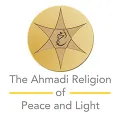Dying for a song shared on WhatsApp? Unfortunately, it's possible
The much-vaunted freedom of the web is not so free after all, as evidenced by the European Chat Control bill to “monitor” its citizens' chats. In Nigeria, where Sharia law is rigidly enforced, sharing a song on WhatsApp that contains opinions about the prophet Mohammed, opinions not shared by Muslims who follow Sharia law, results in a death sentence by public hanging, as a warning to blasphemers.



















